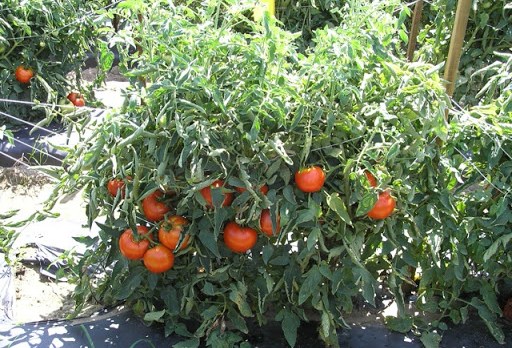Late summer is the season of fecundity. In April those gentle, tender little shoots made their first introductions, and now they have (literally) come to fruition, and are spewing their seed, along with oceans of greenery, all over God’s earth. Their Creator has told them to multiply, and they are obeying with enthusiasm.
I think we appreciate this season with a special intensity here in Minnesota. Like the Starks of Winterfell, we never forget here that Winter Is Coming. Every other season by comparison seems like a respite; late summer is almost a miracle. In four months’ time, the back yard will be a barren wasteland of snow and ice, but for now, it is an embarrassment of vegetal richness.
The fences and railings are covered in vines. I love climbers of every sort, and their space-saving benefits are particularly appreciated in a postage-stamp city backyard. So I plant morning glories and moon vines, green and purple string beans, sweet peas and sugar snaps and cantaloupes. On one side an aggressive hubbard squash is surging its way along the fence. Most years I have a greater selection of squash, but they’ve fallen prey to powdery mildew over the course of this very rainy summer. Somehow this one weathered the storms and is flaunting its survivor status with flashy yellow blossoms. Good on you, Mrs. Hubbard.
The peppers and greens are having just an average year, and rabbits have decimated the sprouts and broccoli. But the herb pots are luscious, and watermelon vines are exploding across the lawn. The tomatillos have put out their husks, hanging like small Chinese lanterns, while perky green carrot tops promise rooty goodness to come. From the corner of one eye I see the smooth, dark beauty of a nearly-ripe eggplant.
As always, the true prize is the tomato jungle. Every year has its agricultural successes and failures, but the tomatoes never let me down. Peering through the dense mass of foliage (small yard, close quarters) I can see that this year will be no exception. Soon our table will see the bounty of fresh salsas and Panzanellas and a mean Arrabbiata sauce. It’s simply amazing to me how much tomato goodness that little patch can produce.
In case it’s not obvious, I cherish these little plants. But I’m a casual gardener, by necessity. The back yard gets a little neglected sometimes, as boys, menus and editorial deadlines top my priority list. In truth, writing and gardening are a ribeye-and-Cabernet combination, and I can already picture myself at 64, mentally planning an essay (on tomatoes, perhaps?) while I happily weed and fertilize. For now the process is a little slapdash. After a hectic series of days with the family, I will revisit my vegetables, and feel like their dottering Great Aunt as I find myself remarking with exaggerated enthusiasm, “Oh, just look how you’ve grown!” and “You made a summer squash, well done!”
So I may not be destined for State Fair vegetal fame. It’s still worth it. Chesterton once remarked that, “Anything worth doing is worth doing badly,” and that’s just how I feel about the garden. I need it. Not for the nutrients, though those are appreciated too, and I find that boys are far more willing to eat vegetables that they themselves have helped to plant and harvest. Gardens are also great for delivering incredible flavor, especially for those vegetables (peas, tomatoes) that are really best if you eat them within an hour or two of picking. No Farmer’s Market or CSA will express them to your door with that kind of speed. The yard-to-table vegetable dish is a summer pleasure that everyone should experience if they possibly can.
As wonderful as that is, the physical nourishment is really more of a bonus. I need the garden for spiritual food. In a sterilized, alienated, technocratic age, the garden is soul-therapy. It enables me to gorge myself on life and hope and that decadent late-summer fecundity. It gives me glimpses of God’s grandeur, flaming out “like shining from shook foil.” Watching the tomato jungle come into its own each year, I am encouraged and cheered by the reminder that, for all the heaviness of our benighted age, nature is never spent, and that dearest freshness remains deep down.
We owe it to ourselves to enjoy these respites from the chaos and despair of modern life. When God seems impossibly far away, check the vegetable patch. I often find him lingering among the rainbow chard.
Rachel Luteaches philosophy at the University of St. Thomas and writes for Crisis Magazine and The Federalist. Follow her on Twitter at @rclu.

